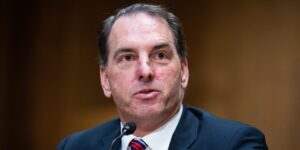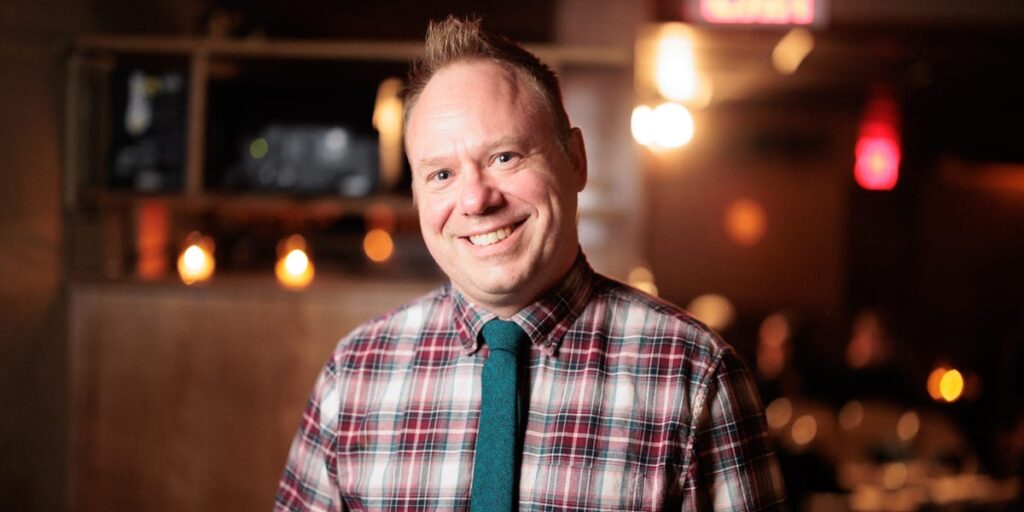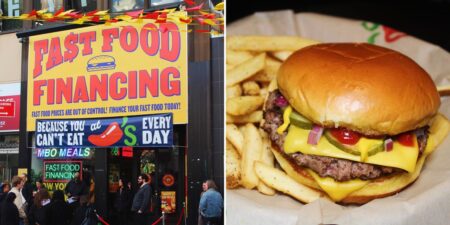When I told people in late February that the Federal Emergency Management Agency had offered me a job, the typical response was, “I thought they were getting shut down.”
President Donald Trump had been outspoken about dismantling FEMA, an agency that’s come under recent scrutiny by Elon Musk and the Department of Government Efficeny, or DOGE. And yet, I was offered a role that month as an agency “reservist.”
Reservists are hourly-wage workers who are deployed to disaster areas with 24 hours’ notice for unknown lengths of time. I may have won the job when I jokingly told my interviewers, as a single, childless freelance writer: “I have no life.”
Excitement and relief washed over me when I received the offer. My new job would be writing press releases, blog posts and other content, communicating how FEMA was responding to a disaster.
Though I’d be paid only when deployed, this job granted me another much needed revenue stream. While I would have embraced a consistent full-time position, this intermittent job at FEMA meant I could better maintain my freelance lifestyle — which still has its perks. I also looked forward to the travel when assignments manifested.
After more than a year of toiling in one of the toughest job markets in recent memory, the FEMA job offer alone provided me with greater peace of mind, and boosted my self-confidence.
Once proud, my confidence was shaken
I began my freelance writing career in 2012 and, after proudly growing as both a journalist and content producer, I felt it coming apart a couple years ago.
Though my skills had improved, opportunities dwindled. Publications folded and newsroom budgets were slashed. Freelance jobs grew increasingly tougher to land, and when I scored assignments, the rates were lower. I worked harder and longer for less money.
While taking whatever freelance gigs I could get, I also began searching for a full-time job in late 2023.
I looked in journalism, but the industry was experiencing massive layoffs, so I also applied in sectors where my skills were transferable: marketing, public relations and communications.
I craved consistency for better mental health and to build a future where annual vacations and retirement seemed possible. I was sure I’d secure a spot someplace before my savings ran out.
But as the months passed with barely any responses to applications, my credit card debt and anxiety level ballooned. I had a strong, highly transferable skill set and 12 years of experience working with legacy publications and big name brands, but was seemly unhirable. I was crushed, scared and in disbelief.
My financial situation became so dire I took a job as a part-time substitute teacher, which was disheartening and felt like a step backward because I’d left education to become a writer.
A lucky break led to relief
Then, last December I wrote about my struggles for Business Insider. A friend of mine posted the essay on Facebook and a couple of his followers wrote supportive comments. One of them, a FEMA worker, said that the agency needed writers and connected me to a recruiter.
When I chatted with FEMA’s interviewers on February 7, they responded warmly to my answers. I grew to really want the reservist role, especially after learning of growth opportunities in the agency. After enrolling in training, I could apply to higher-up positions in FEMA, but at the very least I’d have a boosted résumé with bonafide communications experience on it.
On March 31, I filled out background check paperwork and had my fingers printed in FEMA offices at One World Trade Center. As a New Yorker who worked in Manhattan on 9/11, walking into that building was somber. But upon leaving, I no longer felt demoralized by the endless job searching.
Then came yet another gut punch
Hours after my fingerprinting appointment, I got an email saying my offer from FEMA was rescinded. The email said it was due to “a change in operational needs.” A week before it was reported that FEMA had frozen all external hiring and onboarding of new employees.
My connection at the agency is hopeful the freeze will be lifted and that I’ll still be awarded a position.
Putting it mildly, to be in the job market right now is to grapple with encroaching self-doubt.
My résumé outlined my decade-plus of successful writing perfectly. But for 14 months, I’d applied to countless jobs, many of which I was overqualified for, and landed only four interviews. Every interview I thought went well. When rejection emails arrived, the potential employers repeatedly mentioned an outsized response to job postings.
“How good of a writer am I if I can’t get a job?” I often thought. The lack of humanity in employment searches — the virtual applications, scams, ghosting — means job hunters are navigating a vast landscape painfully alone, unaware of what they may be doing “wrong.”
I’ve read discourse in the people management community about hiring workers with the right character traits and skills rather than experience; however, that practice won’t be normalized if recruiters are also increasingly using AI to scan résumés.
I firmly believe my lack of traditional full-time employment at companies, with position titles, has held me back because the non-human entities scanning my résumé don’t process what I’ve done as “experience.”
It seems the best way to get a job right now is through personal recommendations. But the finest workers available are probably not the ones Dan in accounting is friendly with. Why use these online tools if they’re not producing high-quality results?
Now, I’m back on the digital job boards, more uncertain than ever about my future employment. My fingers are tightly crossed, as I continue clicking “Apply” into the AI ether.
Read the full article here
















